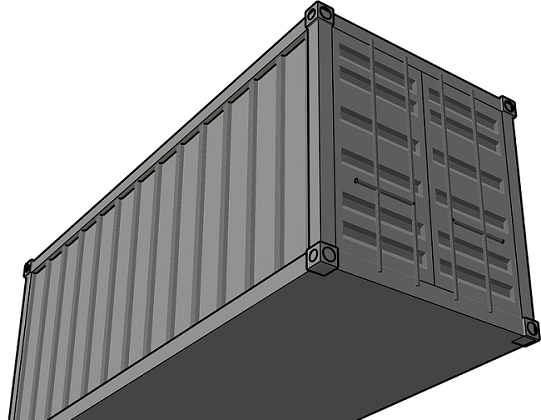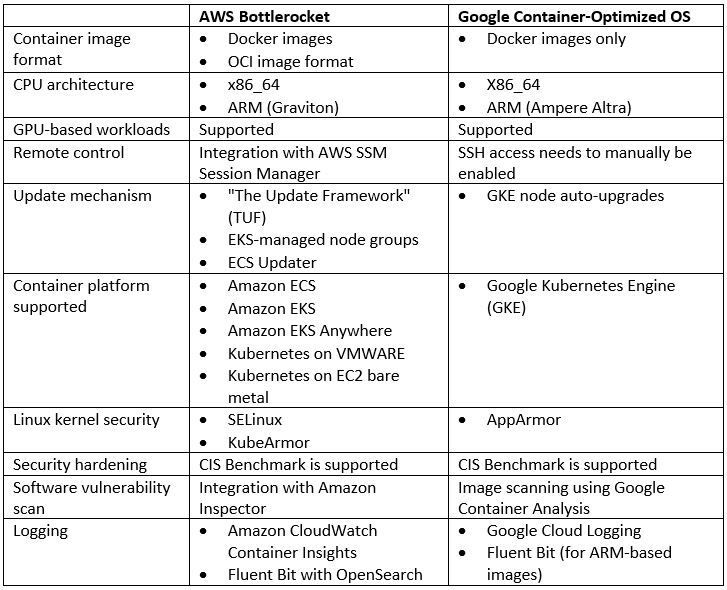Working with modern computing environments based on containers offers a lot of benefits (from small image footprint, fast deployment/decommission, and more), but it also has its challenges (from software/package update process, security, integration with container orchestrators, and more).
In this blog post, I will review container operating systems, what are their benefits in the modern cloud environment, and how AWS compares to Google Cloud in terms of container operating systems.
What is Container Operating-Systems?
Container OS is a special type of Linux OS, dedicated to running container workloads.
Below are some of the benefits of using Container OS:
- Small OS footprint – Container OS includes only the necessary packages and dependencies for running containers
- Optimized performance – Container OS is optimized specifically to run container workloads
- Immutable root filesystem – The root filesystem is mounted as read-only. No changes can be done to the root filesystem
- Remote control – SSH to the Container OS is disabled by default
- Automatic updates – Container OS software updates are done using the CSP-managed containers or Kubernetes service upgrade mechanisms
AWS Bottlerocket vs. Google Container-Optimized OS
Summary
Container operating systems are considered the last word in the evolution of hypervisors, optimized to run container workloads.
Their small footprint, built-in security features, auto-update, and integration with managed Kubernetes services make them idle for running container workloads.
Although both Bottlerocket and Container-Optimized OS were created by specific cloud providers, AWS Bottlerocket does offer much broader alternatives for running a container OS on various container platforms.
References
About the Author
Eyal Estrin is a cloud and information security architect, the owner of the blog Security & Cloud 24/7 and the author of the book Cloud Security Handbook, with more than 20 years in the IT industry.
Eyal is an AWS Community Builder since 2020.
You can connect with him on Twitter and LinkedIn.




Latest comments (0)